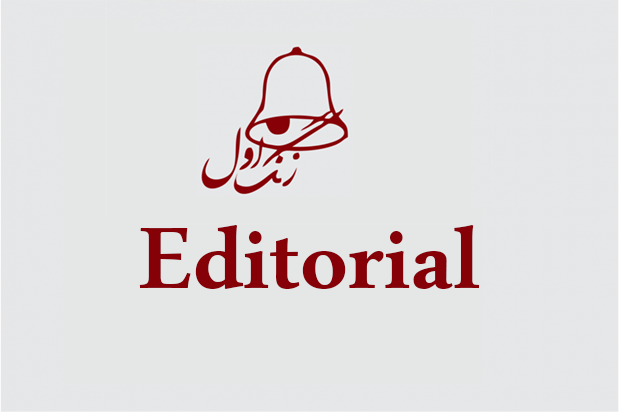The appointment of ministers is subject to the approval of the House of Representatives, while the President has the power to accept their resignation or dismiss them. This authority is vested in the President in Article 64(11) of the Constitution. Also, the first paragraph of Article 66 of the same law emphasizes that the president must observe the supreme interests of the people in exercising his powers. Going by the clear and explicit nature of the third clause of this article, the president cannot use his position for linguistic, regional, ethnic, religious and partisan considerations.
The Office of Presidential Affairs sent a letter to the Ministry of Public Health on December 31, in which it spoke of the resignation and removal of Ahmad Jawad Osmani from the ministry. According to this letter, the president had studied and considered the Osmani resignation letter. Following the letter, the term resignation was changed to dismissal. The letter states that Ahmad Jawad Osmani was removed from office on the basis of a presidential decree. The reason given was the widespread financial corruption that has taken place under Osmani’s watch at the Ministry of Public Health. But according to Osmani, the news of his resignation is false, and he has not yet resigned despite two requests from the president. Osmani referred to his dismissal as a kind of political conspiracy.
That said, it is up to the president to appoint ministers, accept their resignations and remove them. In order to exercise this power, the provisions of the first and third paragraphs of Article 66 of the Constitution must also be observed. However, pressuring ministers to resign is against the law. Also, the president cannot formally ask ministers to resign, while approving their resignation at the same time. According to the law, a minister’s resignation is a legal document from someone who has decided to resign without pressure from or at the request of the president. Therefore, the president’s request for Osmani to resign or force him to do so is incorrect and against the law. The removal of ministers is one of the most authoritative powers of the president in the constitution. If Osmani had not decided to leave the Ministry of Public Health, Ghani should not have pressured him to resign. Instead of requesting his resignation twice, the president should have simply issued a direct dismissal order.
Another point is that the issue of resignation has a different legal meaning than the issue of dismissal of a minister. When it comes to resignation, this has to do with the minister’s will or decision to resign, while in the case of dismissal, this is not the case. Under certain conditions, the president may remove and dismiss a minister, regardless of whether the minister concerned agrees or disagrees with this decision. However, both possibilities cannot be used for the same purpose, as in this case, where he both signed the minister’s resignation letter and ordered his dismissal. Unfortunately, this is the kind of unprofessionalism seen in the letter of December 31 from the Office of Presidential Affairs to the Ministry of Public Health. The letter states that any administrator who is accused of widespread corruption should be fired. It is not clear what the legal basis of this statement is and why Osmani’s dismissal order was based on it. The letter also did not specify what widespread corruption was taking place in the Ministry of Public Health, which required the dismissal of the Minister of Public Health. If the issue is the same allegations of corruption made by the Attorney General and the National Directorate of Security against four employees of the Ministry of Public Health, this allegation has not yet been proven and the detainees have not yet been sentenced. In addition, no court has said that the minister is guilty of this corruption and that he should be relieved of his duties and be tried. Unfortunately, this part of the president’s decree has no legal basis either.
In view of the above, it can be concluded that the President did not use his powers properly in dismissing the Minister of Public Health. First, the president has no right to formally demand the resignation of his minister without the latter’s consent. Secondly, the president must have good reasons for dismissing his ministers, which, unfortunately, is not the case here. The allegation of widespread corruption in the Osmani-administered Ministry of Health has yet to be substantiated, and his removal is merely based on allegations. His connection to the incident is still unclear.
Ghani seems to have fired the Minister of Public Health based on feeling. These feelings may be rooted in sectarian or political strife or arising from his intentions to fight corruption. In the first case, according to the third paragraph of Article 66 of the Constitution, the President has no right to use his office for linguistic, regional, ethnic, religious and partisan considerations. In the second case, the intention to fight corruption must be realized in the light of the law, and the law must cover and support all stages of the fight against corruption. Otherwise, this struggle can backfire and deviate from it instead of providing justice.












